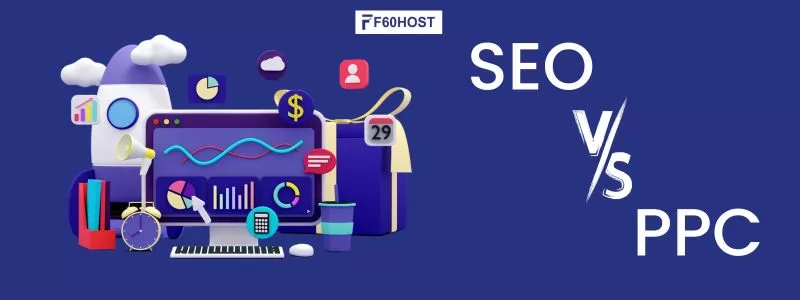Learn About Organic SEO and Why Is It Important

What Is Organic SEO?
Organic search engine optimization (organic SEO) refers to actions performed to improve your search engine ranks without the use of advertisements. Organic SEO, also known as natural SEO or unpaid SEO, is the practice of optimizing a website to boost its visibility and ranks in organic (non-paid) search engine results pages (SERPs). Organic search engine optimization (organic SEO) is the process of obtaining a high placement (or position) on a search engine results page in unpaid, algorithm-driven results on a certain search engine.
Organic SEO involves several key components, including:
- On-Page Optimization: This includes optimizing individual web pages by combining relevant keywords, providing high-quality and interesting content, optimizing meta tags, headers, and URLs, increasing website performance and user experience, and ensuring correct internal association.
- Off-Page Optimization: This focuses on increasing the authority and reputation of a website by utilizing external sources. It includes building high-quality backlinks from reputable and relevant websites, social media promotion, online reputation management, and guest blogging.
- Keyword Research: Identifying and targeting relevant keywords and phrases that users are likely to search for when looking for products, services, or information related to the website’s content. Keyword research helps in optimizing content and improving its visibility in search results. there’s a tool Known Keyword Everywhere that will help you to find relevant keywords with their volume
- Content Marketing: Creating and sharing high-quality, informative, and engaging content that resonates with the target audience. Content can include blog posts, articles, videos, infographics, and more. Content marketing helps attract organic traffic, gain backlinks, and establish authority in the industry.
- User Experience (UX): Ensure that the website delivers a favorable user experience, such as simple navigation, quick loading times, mobile responsiveness, and clear calls to action. User experience is a significant ranking element for search engines.
- Technical SEO: Optimizing the technical aspects of a website, such as improving site speed, fixing broken links, implementing proper redirects, optimizing robots.txt and sitemap.xml files, and ensuring proper indexing and crawling by search engine bots.
Organic SEO is a long-term strategy that aims to build a strong online presence and sustainable organic traffic over time. It focuses on providing value to users and aligning with search engine guidelines, rather than relying on paid advertisements or shortcuts to achieve search engine visibility.
Why Is Organic SEO Important?
Organic SEO is important for several reasons:
- Increased Visibility and Organic Traffic: By optimizing your website for search engines, you enhance the likelihood of it showing toward the top of search engine results pages (SERPs). This enhanced exposure implies that more individuals will discover your website and click through to it, resulting in more organic traffic. Organic traffic is extremely significant since it comprises visitors actively looking for products, services, or information linked to your website.
- Cost-Effective Strategy: Unlike paid advertising, organic SEO is a long-term cost-effective technique. While it takes time, effort, and resources, the benefits may be long-term and sustainable. Once your website ranks high in organic search results, you may continue to earn organic visitors without spending any further money on advertising.
- Credibility and Trust: Organic search results are often more trusted by users than sponsored adverts. Users will see your website as authoritative and relevant, and trustworthy if it ranks high in organic search results. Establishing a reputation through organic SEO may result in improved user trust, higher click-through rates, longer browsing sessions, and, ultimately, more conversions.
- Long-Term Results: Organic SEO is a long-term strategy that focuses on laying the groundwork for your website’s online existence. You may develop a long-term source of organic traffic by adhering to best practices and continually optimizing your website. While rankings may vary over time, organic SEO efforts may provide long-term results and steady organic traffic.
- Targeted Traffic and Higher Conversion Potential: Organic SEO helps attract targeted traffic to your website. When users find your website through relevant search queries, they are more likely to be interested in your offerings and have a higher potential for conversion. By aligning your website content with user intent, organic SEO can bring in visitors who are more likely to engage with your website and convert it into customers or leads.
- Competitive Advantage: In today’s digital world, competition is strong. By implementing successful organic SEO methods, you may obtain a competitive advantage over organizations that do not engage in SEO or rely primarily on paid advertising. Ranking higher in search results may help you stand out from the competition, enhance brand visibility, and acquire more organic search traffic for your business.
- Better User Experience: Organic SEO includes enhancing several parts of your website, including content, structure, and usability. These optimizations are useful not just to search engines, but also to the whole user experience. A website that loads quickly has relevant and compelling information, is mobile-friendly, and is simple to navigate increases user happiness, encourages longer sessions, and lowers bounce rates.
In summary, organic SEO matters because it increases exposure, drives targeted traffic, builds reputation and trust, and achieves long-term outcomes. It is a low-cost technique that may give a competitive edge while also providing a great user experience, resulting in increased conversions and business success.



